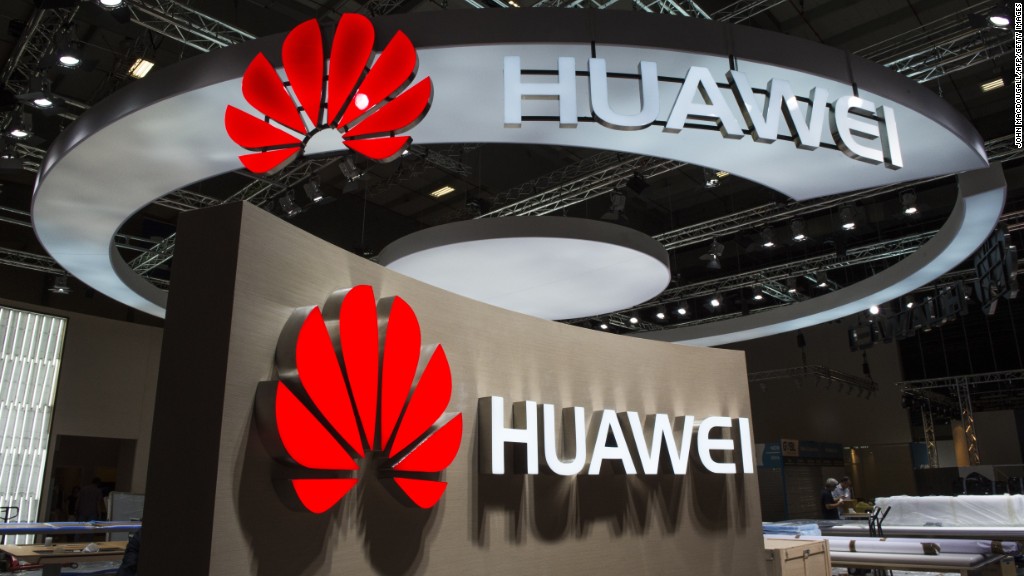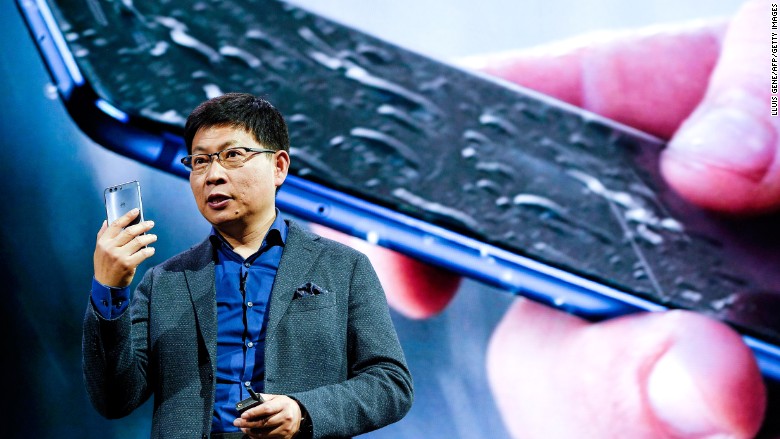
China's largest smartphone maker wants to build its business in the U.S. But don't expect a splashy photo opportunity with President Trump.
"Our style is not so like Jack Ma. He's more active," said Richard Yu, the head of Huawei's consumer business, referring to the charismatic founder of Chinese tech giant Alibaba (BABA) who met with Trump in January and pledged to help create jobs in the U.S.
Yu said such a meeting could be a "good idea" but suggested it wouldn't really fit with Huawei's approach. "We are a little bit more ... humble," he told CNN.
Jack Ma's meeting followed a high-profile visit to Trump Tower the month before by Japanese tech tycoon Masayoshi Son, the CEO of SoftBank (SFTBF).
For Huawei, the U.S. market has proved to be a tough one to crack. The company's telecom networks business remains effectively shut out of the country after Congress issued a critical report in 2012. Lawmakers suggested that Huawei equipment could pose a threat to national security -- allegations that the Chinese company described as "baseless."
Related: Alibaba's 1 million American jobs promise isn't realistic
Huawei may have a less splashy approach to making headlines than Alibaba, but Yu is unabashed about his company's aggressive global ambitions. He told CNN that it's aiming to become the world's number one smartphone maker in the next five years.
It's currently the third largest after Samsung (SSNLF) and Apple (AAPL). But the Chinese company has only a tiny share -- less than 1% -- of the U.S. market, according to research firm Kantar Worldpanel.
"We want to break through the U.S. market, because U.S. consumer(s) also need better products ... and we have better products," Yu said.

To do that, it will have to hope that Trump's tough talk on trade with China doesn't translate into concrete measures that could spark a trade war. During the campaign, Trump threatened to slap import tariffs of as much as 45% on products from China, which he has repeatedly accused of competing unfairly.
But Yu said it's Huawei that's getting the raw end of the deal with the U.S., claiming the company buys a "huge" amount of elements for its smartphones -- like chips, other bits of hardware and software -- from American suppliers.
Related: Inside Huawei's giant campus in China
"We have a lot of contribution to the U.S. market, but the US does not to us, so it is not balanced," he said.
In the past few years, Huawei has grown steadily in Europe, the Middle East, Latin America and Africa. Its high-end flagship smartphones, the P8 and P9, were particularly popular in Western Europe, according to research firm IDC.

Samsung's embarrassing debacle over its fire-prone Note 7 phone, which it eventually had to kill off, has also given Huawei a chance to grab a bigger piece of the global market.
"It is an opportunity for everyone," Yu said of the Samsung fiasco. "Everyone can make a mistake. For Huawei, we should also learn from this lesson in case we make a mistake ourselves."
Huawei launched its new flagship smartphone, the P10, at the Mobile World Congress in Barcelona on Sunday.
-- Anna Stewart contributed to this report.

